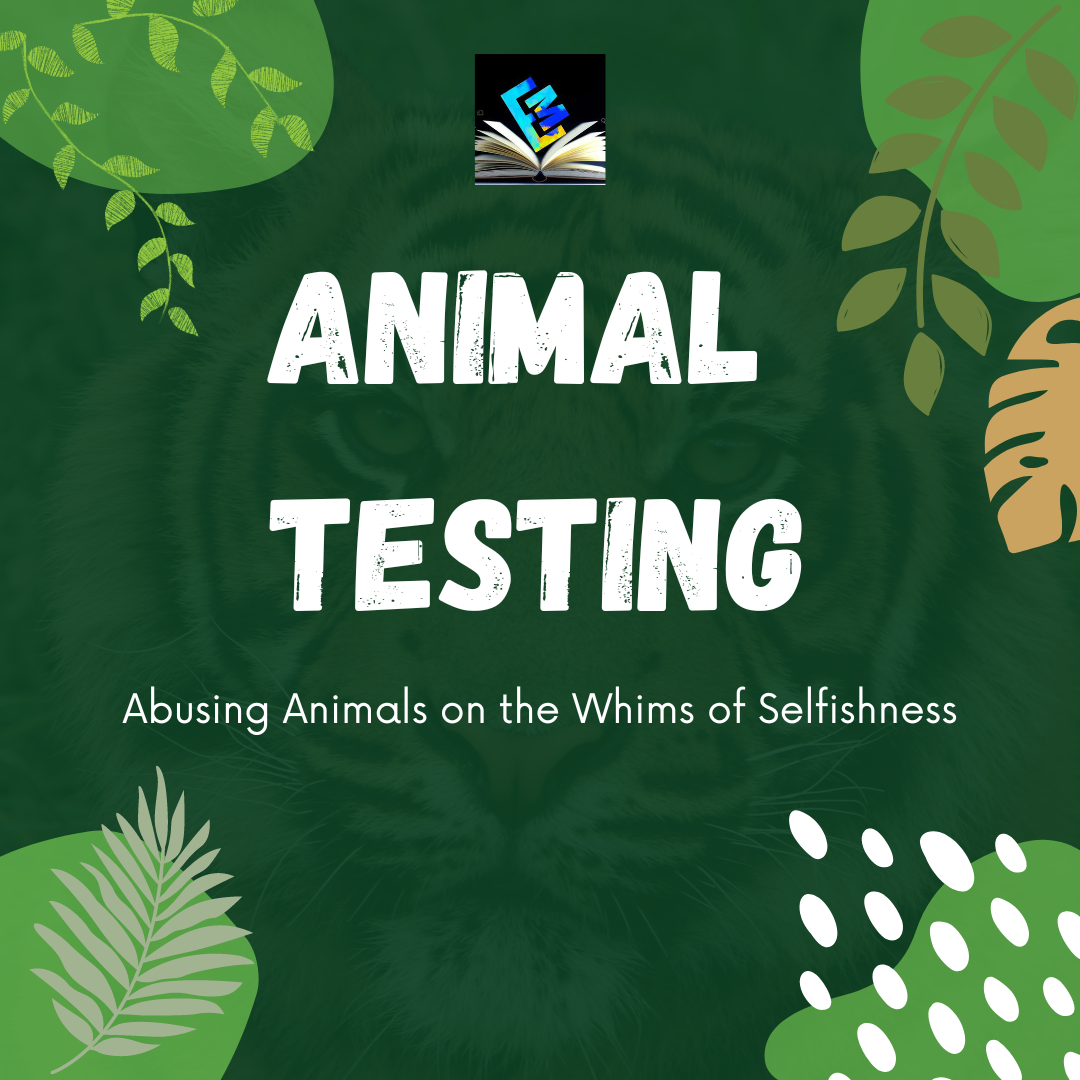
Animal Testing | Abusing Animals on the Whims of Selfishness
Keywords – Animal Testing, Animal Cruelty, Humanity, Danger to animals
Written By – Tanishka Rajan
Annually, more than 115 million animals are used worldwide in experimentation or to supply the biomedical industry.
Using animals in research and to test the safety of products has been a topic of heated debate for decades. Animals’ rights are violated when they are used in research. These experiments cause not only physical harm to the animals, but also psychological harm and long-term damage to them. Animal testing is bad because of the suffering that it causes to nonhuman animals, who cannot consent to their bodies being exploited and tested on by humans.
Introduction
Animal testing, also known as animal experimentation, animal research, and in vivo testing, is the use of non-human animals in experiments that seek to control the variables that affect the behavior or biological system under study.
In other words, The term “animal testing” refers to procedures performed on living animals for purposes of research into basic biology and diseases, assessing the effectiveness of new medicinal products, and testing the human health and/or environmental safety of consumer and industry products such as cosmetics, household cleaners, food additives, pharmaceuticals and industrial/agro-chemicals.
Types of Animals Used
Many different species are used around the world, but the most common include :
- mice, fish, rats, rabbits
- guinea pigs, hamsters, farm animals
- birds, cats, dogs, mini-pigs
- non-human primates (monkeys, and in some countries, chimpanzees)
Why Animal Testing Should Not Be Done?
● It is Unreliable : Human and nonhuman animals differ in many ways, so the results produced by animal experiments often don’t accurately predict human responses. Drugs that are tested on animals also have low rates of success—92
percent of experimental drugs that work safely in nonhuman animals fail in human clinical trials because they are too dangerous or ineffective.
● Dangerous for Humans : Animal testing can be detrimental to humans as well. There have been many trials on humans that went badly because their assumed risk was low due to previous testing on animals, but which turned out to be detrimental to human health. For example, Vioxx.
● Dangerous for Nonhuman Animals : It is obvious that animal testing harms nonhuman animals first and foremost. Mice, rabbits, rats, and guinea pigs are routinely subject to skin and eye irritation tests conducted by dripping chemicals into their eyes or rubbing them onto their shaved skin, without any pain relief.
● Animals Are Biologically Different : Although we share many traits with nonhuman animals, such as the capacity to feel pain and experience a wide range of emotions, there are many things that separate us. Nonhuman animals don’t contract many human diseases such as HIV, schizophrenia, Parkinson’s disease, major types of heart disease, and certain types of cancer.
● Animals Feel Pain : It has been proven that nonhuman animals feel pain. Evolutionary biologists like Marc Bekoff are clear that all mammals share basically the same nervous system, chemical transmitters, perceptual tools, and emotional states, which all contribute to the experience of pain.
Facts
- The registration of a single pesticide requires over 50 experiments and studies on up to 12,000 animals.
- According to the National Institutes of Health, 95 percent of drugs tested on animals ultimately fail in human trials.
- Of all the animals forced into animal testing, 60 percent are used in biomedical research and product safety testing.
How Can Animal Testing Be Stopped?
- Creating Awareness : The first step toward stopping animal testing is spreading awareness of what it really entails. Many people are unaware of the pain that animals go through.
- Alternatives : Animal testing is not the only option for testing chemicals and medicines, so alternative options should be considered and used.
- Only Buy Cruelty-Free Products : Avoid purchasing household cleaners, deodorant, feminine hygiene products, or makeup that has been tested on animals. There are so many brands (especially when it comes to makeup) that are cruelty-free and reject animal testing.
- Donate to Stop Animal Testing : There are a number of organizations that focus on eradicating or minimizing animal testing. Most of these are nonprofits that depend upon the donations of like-minded individuals to achieve their goals.
Entities Attempting To Stop This Act Of Cruelty
- National Anti-Vivisection Society (NAVS)
- White Coat Waste Project
- Physicians Committee for Responsible Medicine (PCRM)
- Center for Alternatives to Animal Testing (CAAT)
- Congressional Animal Protection Caucus
Conclusion
Animal testing should be banned as it is unsafe for humans and nonhuman animals, unreliable, inefficient, and outdated. The suffering that animals unwillingly endure in our experiments and tests is unnecessary and cruel.
“Our task must be to free ourselves from this prison by widening our circle of compassion to embrace all living creatures and the whole of nature in its beauty.”
For any Query Visit Us
Or mail us at edumoundofficial@gmail.com
Read Similar Articles – Animal Cruelty – Forgotten Humanity






